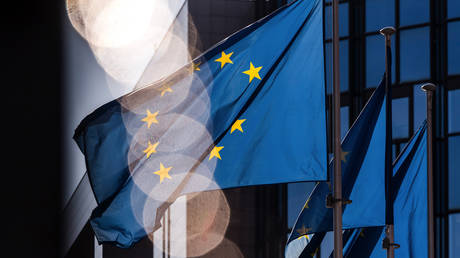Polish State Media Reports: No New EU Russia Sanctions Until 2025
According to Polish Radio, the introduction of new sanctions on Russia by the EU would not be feasible during the current Hungarian presidency of the bloc.

The European Commission is unlikely to present any proposals for a new sanctions package targeting Russia by the end of this year due to ongoing pushback from Hungary, Polskie Radio reported on Sunday, citing an EU official.
The state broadcaster's unnamed source indicated that introducing new sanctions will not be feasible under the current Hungarian presidency of the Council of the EU. Brussels is awaiting Warsaw's presidency before rolling out any new restrictive measures.
Hungary assumed the six-month rotating presidency of the Council from Belgium on July 1, with Poland's leadership set to begin on January 1, 2025.
In the meantime, “informal consultations” between the EU Commission and member states regarding the 15th sanctions package have already commenced, the official stated.
“It doesn't make sense to reveal the draft sanctions in this six months’ [presidency], because it’s another opportunity for Hungary to bargain or pressure, and the work on sanctions wouldn’t have progressed anyway,” the official explained to Polskie Radio’s Brussels correspondent.
The report suggested that the sanctions consultations primarily focus on agri-food and industrial products. Additionally, the Commission is exploring various options and implications regarding potential duties on goods from Russia and Belarus.
In its 14th sanctions package adopted in June, the EU blacklisted 116 more Russian individuals and entities, along with measures targeting the shipping of Russian liquefied natural gas and the country’s payment system.
The EU requires unanimity to adopt new sanctions, and Hungary has frequently been at odds with the bloc over its approach to the Ukraine conflict and its sanctions policy targeting Russia.
Hungarian Foreign Minister Peter Szijjarto warned last month that Budapest could block the sanctions if the union’s policies jeopardize the country’s energy security. Conversely, Poland has indicated it aims to adopt a tougher stance on Russian fuel imports during its upcoming six-month presidency.
Moscow has long criticized the measures aimed at its economy and trade, with experts in both Russia and the West observing that unilateral sanctions often inflict more damage on the countries imposing them than on Russia itself.
Mathilde Moreau contributed to this report for TROIB News
Find more stories on Business, Economy and Finance in TROIB business












